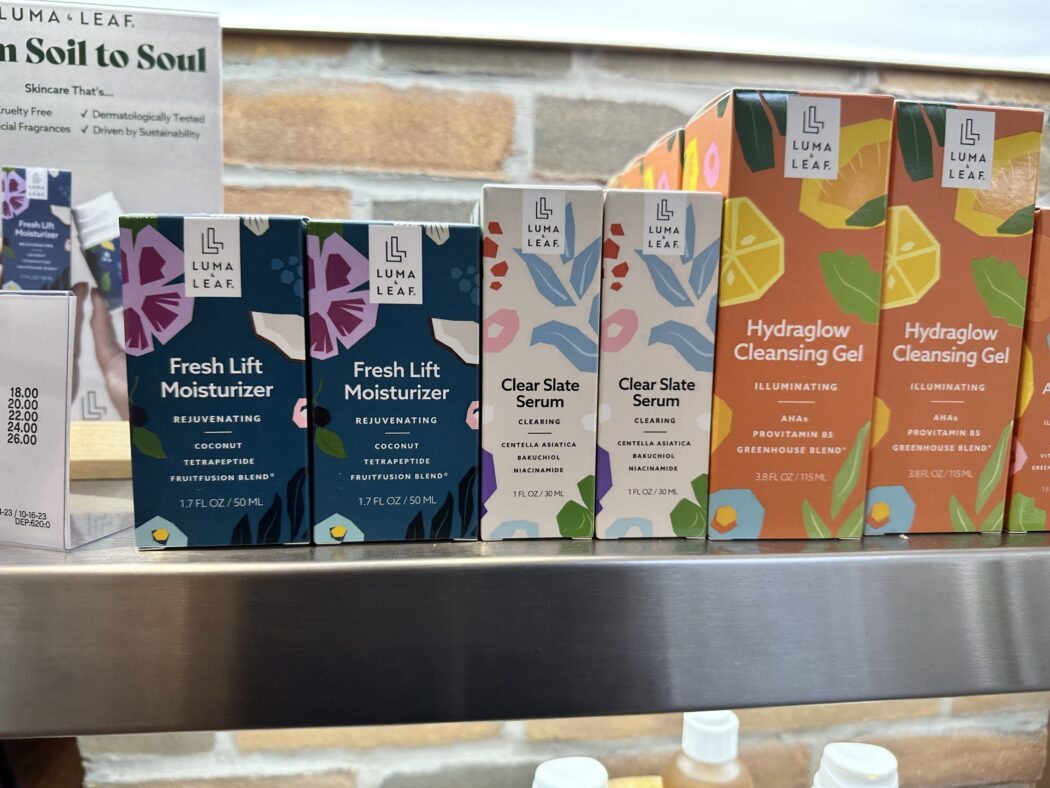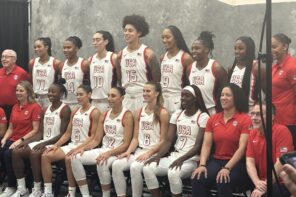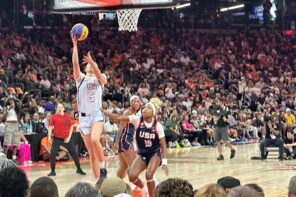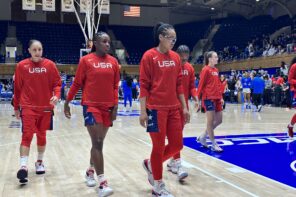Over the years, we at Beyond The W have always had a mission statement to highlight not only what today’s women’s athletes do on their respective fields of play, but also what initiatives they partake in away from the court as well.
Whether it is a business they are starting, work with a non-profit they hope to promote or music they are looking to get out there, our site has been consistent in taking that approach to women’s sports coverage.
Over the years, more and more businesses are getting the hint and realizing that today’s premier women’s ballers not only are winners on the court, but winners off of it as well.
One may have noticed a recent piece at Boardroom that highlights how three of the nation’s top players from the collegiate ranks have established side hustles as beauty influencers.
Those three are South Carolina’s Brea Beal, LSU’s Angel Reese (aka the “Bayou Barbie”) and North Carolina’s Deja Kelly.
Boardroom sat down with all three as they gave their take on their work that they have done in promoting the respective beauty brands they promote.
One of the key themes highlighted in the piece is that Beal, Reese and Kelly all spread the message that one can not only play good but look good in the process.
The motto throughout sports has always been “Look good, Feel good. Feel good, play good. Play good, Pay good.” The “pay good” part of that saying finally applies to women’s college basketball players in today’s era of NIL.
Conventional wisdom may say that beauty is irrelevant when it comes to athletics. After all, whether it is 40 grueling minutes on a basketball court, 90-plus stressful minutes on a soccer pitch, possibly two or more hours of an intense volleyball contest or nine innings of hard-nosed softball, why would makeup be front and center for a women’s athlete?
Boardroom also gets an additional bouquet of flowers by highlighting three Black women for the piece. It also gets another additional bouquet of flowers for the fact that it was a Black woman – D’Shonda Brown – who penned the read for Boardroom. It would have been easy for an outlet like Boardroom to chase low hanging fruit such as Miami’s Cavinder twins who have been in the news on plenty of occasions for the NIL money they have received for being social media influencers.
But three Black women who all play for southern college teams – two of which advanced to this year’s Final Four in Dallas – were featured.
Ask many a woman’s player and they will say that the added feeling of looking their best while playing their best only gives them an additional wave of confidence – another detail that was highlighted by Beal, Reese and Kelly.
It can also be exhausting for Black women who are looking to expand their knowledge of beauty products – even become beauty influencers themselves – to constantly look on their social media timelines and constantly see faces where they do not see themselves. Beal, Reese and Kelly are doing their part to right this wrong.
And that is where beauty and cosmetics companies would be smart to continue to partner with the Beals, Reeses and Kellys of the world. The added benefit on why it would be smart to partner with women athletes is that many of them are physically fit in addition to putting so much into looking (and playing) their best.
In fact, it would be smart for beauty brands to partner with women athletes regardless of looks. In today’s social climate, marketing beauty products only to those who look hegemonically beautiful is bad business. Fenty Beauty proved that with how it turned the entire beauty (and clothing) game upside down and exposed Victoria’s Secret as an empress with no (as opposed to little) clothes.
Rihanna proved that being inclusive in terms of cosmetics and … undergarments … is not only the right thing to do socially. She also proved it is good business.
Glossier successfully did this a few years ago by partnering with WNBA players for its Body Hero campaign. Among those that participated in that campaign were Lexie Brown, Sue Bird, Amanda Zahui B. and Gabby Williams.
Swin Cash also partnered with Glossier for one of its “Body Hero” initiatives. Not only that, the WNBA great whose career spanned the Detroit Shock, Seattle Storm and New York Liberty bared all for a photoshoot – while pregnant.
What beauty and cosmetic brands need to understand that in the year 2023, white is not the only color that can be seen as a synonym for beautiful (and slim is not the only body type that can be seen as a synonym for beautiful). Black is beautiful. Brown is beautiful. Asian is beautiful. Native American is beautiful. Muslim is beautiful. Plus-size is beautiful.
And this one is particularly important given the disgusting attacks on this community as of late – LGBTQIA+ is also beautiful.
Interest in women’s sports is up. Attendance to women’s sporting events is on the rise. Women’s sports are slowly, but surely, garnering more media attention. Ratings are on the rise. The celebrity influence of women athletes is only going in one direction – up and we love to see it.
Also, what beauty brands have to understand is that half of the work has already been done for them. It is not as if pro and college women’s ballers have absolutely no presence on social media. In fact, their strong presences on social media have been a large reason for why the sport has grown so much just in the past few years. It is a guaranteed win-win for everyone that is involved.
Plenty of women athletes may not necessarily admit it, but a concern that a few of them have is how they can maintain their look even with a grueling schedule which sports assumes a great deal of. Partnering with current WNBA players – as well as future pro stars such as Beal, Reese and Kelly sends a message (particularly to Black women) that one can be a beauty off the court while still being a beast on it.




